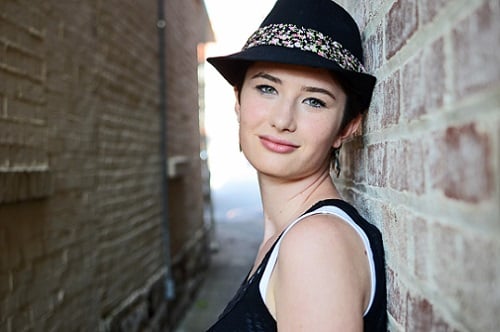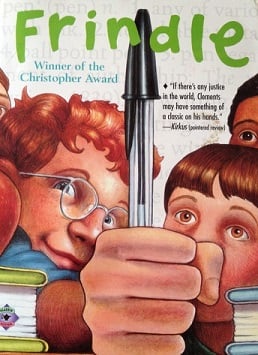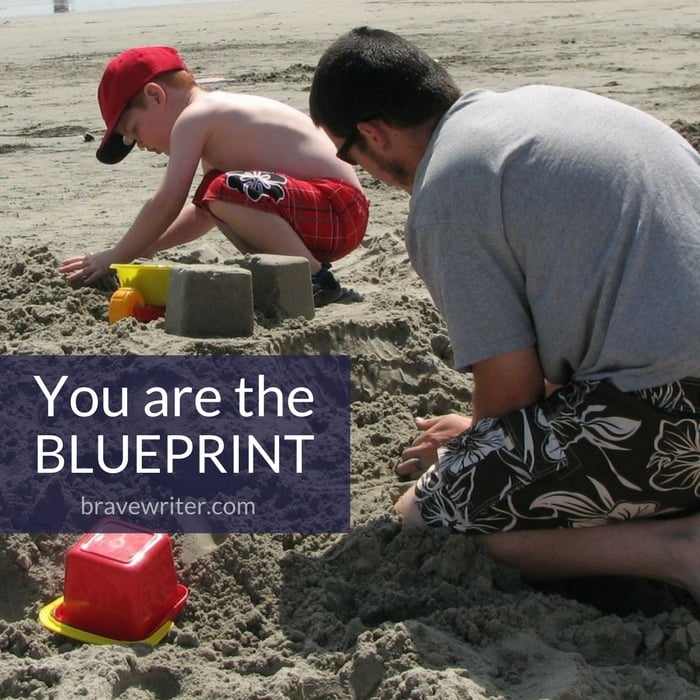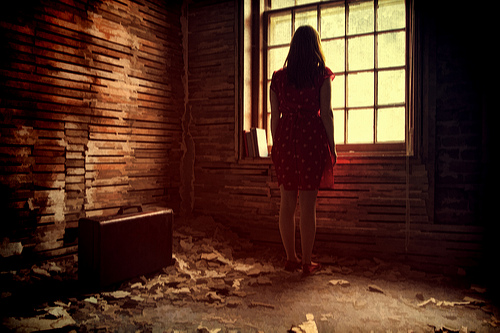My mom discovered Brave Writer almost ten years ago, back in 2005. Since then, I have stumbled and soared through pretty much every aspect of the Brave Writer lifestyle.
We’ve had Tuesday Teatime as a family. (And, yes, we’ve been featured on the blog. Here’s the somewhat embarrassing post). My English prof in freshman year of college scoffed at the idea, but I’m pretty sure he was inwardly envious of growing up drinking tea, reading poetry, and eating cucumber sandwiches.
I’ve had screams of frustration and tears of rage with dictation and copywork from Arrow and Boomerang—though there were days when I did enjoy it, I promise!
Later, I took pretty much every online Brave Writer class that was offered, from The Writer’s Jungle Online to the SAT/ACT essay class. My favorite by far was Passion for Fiction. I still use the writer’s notebook I created in that class!
And, of course, every Friday, I did a Friday Freewrite.
Looking back today, one of my treasured possessions from growing up with Brave Writer is my Friday Freewrite notebook. On the outside, it’s an unassuming yellow checked notebook. Inside, it contains scribbles dating back to 2005, some of which were rather brilliant and most…less so. As I flip through it, I can find all of the following and more:
- A schedule of my “ideal homeschool week”
- Designs for my “dream summer cloths [sic]”
- An entry beginning “I love having to do all the laundry”
- An impassioned argument that Winston Churchill was totally boring
- Moans of “When will this be over? In one minute. Yippee!!!!”
- A book report on Uncle Tom’s Cabin
- A five-page-long story of three kids and a magical creature in Venice
The very last entry I wrote in my freewrite notebook is a poem entitled “Brave.” I actually submitted it to the Brave Writer Blog, and you can read it here. The poem provides a glimpse of my growth as both a person and a writer. I learned that true courage lies in love. If I love something enough, whether it be writing or any other endeavor, then fear cannot stop me. That’s a lesson I’ve carried with me ever since.
So there you have it—my own personal journey growing up with Brave Writer. It’s had plenty of ups and downs (and, really, whose childhood hasn’t?). Still, I can safely say that I now write with courage, confidence, and joy, thanks to Brave Writer.
Kyriana Lynch is a writer, poet, and photographer. She was born in Japan, where she lived until age twelve. Her hobbies include reading Medieval literature, traveling around the world, and doodling in watercolor. She blogs on Christian Fantasy under her pseudonym Sienna North. Her debut novel, Red Sun Blue Earth (affiliate link), the story of a teen girl who survives Japan’s 2011 tsunami, was published March 2013.
























